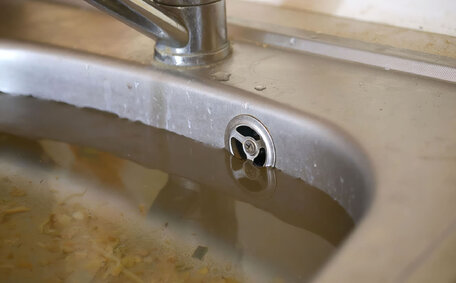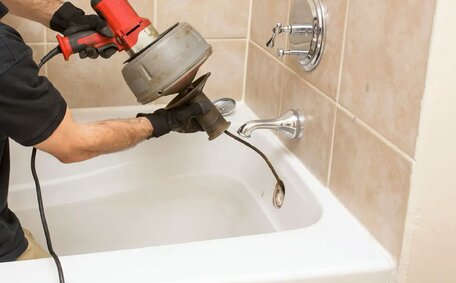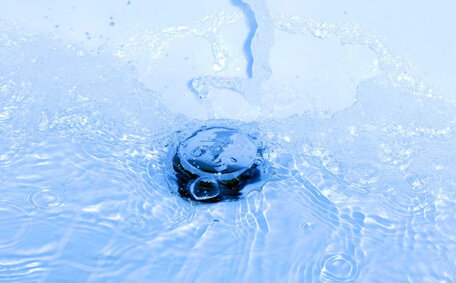Introduction to Natural Gas
Natural gas, endorsed by various agencies such as the Environmental Protection Agency for its efficiency, often referred to as cooking gas, is a fossil fuel commonly utilised in homes for tasks such as cooking, heating with gas heaters, and food preparation on gas stoves. It is composed primarily of methane and, considering the impact on climate change, is piped directly into homes and businesses via an extensive underground network of pipelines.
Compared to other fossil fuels like coal and oil gas, natural gas paves the way towards renewable energy with its cleaner combustion, underpinning environmental protection as noted by scientist pse healthy Energy with lower greenhouse gas emissions and releasing fewer pollutants into the air when used effectively.
Natural gas is a significant energy source in the United States, accounting for approximately 24% of the country’s energy consumption.
The Chemical Composition and Properties of Natural Gas
Extracted from a gas well and shale gas formations through processes like hydraulic fracturing, and conveyed through an extensive gas pipeline network, natural gas burned is acknowledged as a clean energy source, primarily composed of methane. During the process of burning natural gas, especially types with 70-90% methane content, it discharges carbon dioxide and water vapour into atmosphere.
Trace amounts of nitrogen, carbon dioxide, oxygen, and hydrogen sulphide that have been produced may also be present.
Key properties for the safe usage of natural gas are:
- Natural gas is lighter than air, which allows it to rise and accumulate near ceilings in the event of a leak.
- As natural gas is odourless, odorants like mercaptans are added to provide a distinctive rotten egg smell for leak detection purposes.
- Produces cleaner energy with fewer hazardous air pollutants than other fossil fuels when burned.
- Non-toxic, but at higher concentrations, measured in parts per million, can displace oxygen causing a suffocation hazard in confined spaces.
Considering the dangers natural gas poses, such as flammability and asphyxiation hazards, upholding protocols for safe natural gas use is essential.
Detecting Natural Gas Leaks
Knowing how to swiftly detect gas leaks in your appliances and fixtures is crucial for natural gas safety.
If you detect a smell reminiscent of rotten eggs, it’s a potential indicator of a gas leak in your home. Other signs of a leak include:
- Hissing, whistling or roaring sounds coming from gas appliances or pipes
- Dirt spraying from the ground or bubbling in wet areas near gas lines
- Flames coming from the ground or burning above gas appliances
- Unusual odours near gas equipment
- Dead plants or grass in otherwise moist areas near gas lines
Smaller leaks, especially those involving leaking gas in a pipeline, may not be noticeable by smell alone. Gas can accumulate undetected over time in enclosed spaces like basements, leading to risk of fire, explosion or carbon monoxide poisoning.
Annual inspections by a licensed gasfitter with gas detectors are critical in identifying elusive leaks before they result in hazardous air pollution or adverse health effects. In case of uncertainty, contact your local gas utilities provider or an authorised technician to inspect your gas infrastructure for leaks before any excavation begins.
Health and Safety Risks of Natural Gas Leaks
Natural gas leaks pose significant health and safety hazards, including an increased risk of fire and explosion, and prolonged exposure to leaked gas can lead to serious health concerns.
Inhaling unburned natural gas can lead to dizziness, nausea, and severe cases of loss of consciousness or asphyxiation. Leaked gas in concentrations ranging from 5-15% can ignite or cause symptoms of poisoning in humans.
Preventing and Preparing for Natural Gas Leaks
There are several steps homeowners can take to help prevent natural gas leaks and prepare in case one occurs:
Prevention
- Annual servicing of gas appliances by a qualified technician is vital to check for leaks, repair damaged parts, and guarantee optimal operation.
- Visually inspect pipes and fittings regularly for signs of corrosion or damage. Contact your local gas association or company if any issues are found.
- Ensure clear surroundings around your gas meter and appliances to maintain proper ventilation.
- Avoid excessive pressure on pipes that can lead to cracks or loosened joints.
Preparation
- Install detectors to monitor levels of carbon monoxide and LP gas, which alert occupants to significant leakages when using natural gas appliances.
- Make an emergency plan so all household members know how to respond to the smell of gas.
- Keep the 24-hour gas company emergency number and a licenced plumber’s number handy.
- Learn how to use the shutoff valve to turn off your meter and individual appliances in case immediate shutdown is needed.
- Never search for a leak with an open flame. Use a flashlight if lights must stay off.
- Keep a window open for ventilation when performing any work on gas appliances.
Prioritising gas safety and thorough preparedness enables residents to swiftly and securely respond to gas leaks. Know the warning signs, have a response plan, and call a professional anytime a leak is suspected.
What to Do in Case of a Suspected Gas Leak
If you suspect a gas leak in your home, it is crucial to act quickly and safely to find out the source:
- Evacuate the area immediately - get everyone out of the house or building and move a safe distance away. Do not operate any electrical devices or switches as sparks could ignite and leak your gas.
- Avoid using any flames or sparking devices. Do not smoke, light matches, use lighters, turn on appliances, or do anything that could cause a spark.
- If circumstances allow, engage the shutoff procedure off main gas supply valve outside your residence. Use an adjustable wrench and give the valve a quarter turn in either direction to detect gas interruptions. This will shut off gas flow into your home.
- Contact the gas company’s 24-hour emergency number and ensure the gas is turned off. Never resume use of gas appliances until inspected by a qualified technician.
- If you can’t reach the gas company, call emergency services on 000. Gas leaks can quickly become dangerous so don’t delay seeking help.
- Do not switch lights or electronics on or off, as this can produce sparks. Use a flashlight if you need light.
- Open doors and windows to ventilate the area.
- Warn neighbours who may be affected by the escaping gas. Make them aware of the danger.
Evacuating promptly, avoiding ignition sources, and shutting off the main gas valve in your home are key measures to ensure safe usage and mitigate gas leak hazards. Never assume a leak will take care of itself - always call the gas company or emergency services any time a leak is suspected.
When to Call a Professional for Natural Gas Issues
There are certain situations where it is crucial to contact a licenced professional for help with natural gas systems and appliances:
Gas Leaks
If you suspect any kind of gas leak, immediately call the gas company or emergency services. Never try to locate or stop a leak yourself. Licenced technicians have the expertise and equipment to safely address gas leaks.
Appliance Malfunctions
If a gas appliance is malfunctioning, making strange sounds or smells, turning it off and having it inspected by a professional is vital. Do not try using an appliance you suspect may be broken, as it could lead to dangerous gas leakage.
Service and Repairs
Make sure to schedule annual servicing of gas appliances and pipelines by qualified technicians to detect and prevent leaks. Any repairs to gas systems should always be performed by licenced gas fitters. Improper DIY repairs can compromise safety.
Installation
Only a licenced professional should install new gas appliances or extend gas pipelines in your home. Faulty installation is a major preventable cause of dangerous leaks.
For professional servicing and repairs of appliances that use natural gas in the Hornsby area, contact the licenced experts at Hornsby Plumbing on 1300 349 338. With over a decade serving the local community, we have the experience and qualifications to address any gasnatural gas issue quickly and safely.
Maintaining and Inspecting Natural Gas Appliances
Regular maintenance and inspection of home natural gas appliances are crucial for safe operation and understanding how to manage natural gas. To learn more about maintaining your appliances, remember that gas appliances should be serviced by a qualified technician at least once a year to check for leaks, corrosion, blockages and other issues.
Homeowners can also perform basic maintenance tasks between professional checks:
- Check air conditioning units, appliances, and supply lines for signs of damage or leaks.
- Clean dust and debris from around pilot lights, burners and ventilation openings.
- Test that pilot lights are igniting properly and burners are operating correctly.
- Replace any filter elements as per the manufacturer’s instructions.
- Clear out spider webs, nests or other obstructions from vents.
Consult your appliance manuals for the proper maintenance schedule. Should you notice any irregularities, contact a professional at once. Only those qualified should attempt any gas appliance repairs.
During professional servicing, the technician conducts vital checks with natural gas detection tools:
- Conduct thorough leak checks with electronic gas detectors.
- Assess flame patterns and burner functioning.
- Ensure correct pressures when you do gas line inspections.
- Do use specialised tools to test and adjust safety cut-off valves.
- Check and service thermostat controls.
- Clean internal components and heat exchangers.
- Confirm proper ventilation.
Annual servicing ensures your gas infrastructure remains safe, guarding against dangers of natural gas like early leak detection and helps reduce your system’s gas consumption. It also keeps appliances running at peak efficiency, saving on gas usage. Never overlook the recommended maintenance for your home’s natural gas appliances.
Ventilation and Air Quality Considerations
Proper ventilation is crucial in homes, including those running home businesses, with natural gas appliances. Lack of proper ventilation can lead to indoor air contaminants, reducing air quality and increasing health risks. Additionally, gas leaks can allow methane and odorants like mercaptan to enter indoor air.
Burning natural gas emits hazardous pollutants like carbon dioxide and nitrogen dioxide, which, if accumulated indoors, can impact health and contribute to climate change.
Here are some tips focusing on health safety for maintaining good ventilation and air quality in homes with natural gas:
- Ensure that your gas stove and other appliances are equipped with proper hoods venting outside, including furnaces and water heaters.
- Regularly open windows or use exhaust fans to circulate fresh air and dilute indoor contaminants.
- Have a qualified HVAC technician inspect all ductwork and vents annually to ensure proper airflow and venting to the exterior.
- Installing HEPA filters in your heating/cooling system can effectively trap indoor pollutants.
- Use ENERGY STAR certified exhaust fans in kitchens and bathrooms to improve air turnover.
- Install carbon monoxide detectors to alert you to dangerous levels of this gas in your home.
- Consider energy recovery ventilation systems to enhance air exchange and heat recovery for greater efficiency.
Following these gas safety tips, such as adhering to manufacturer guidelines and using adequate ventilation practices, enhances indoor air quality and ensures residents can safely derive benefits from natural gas.






